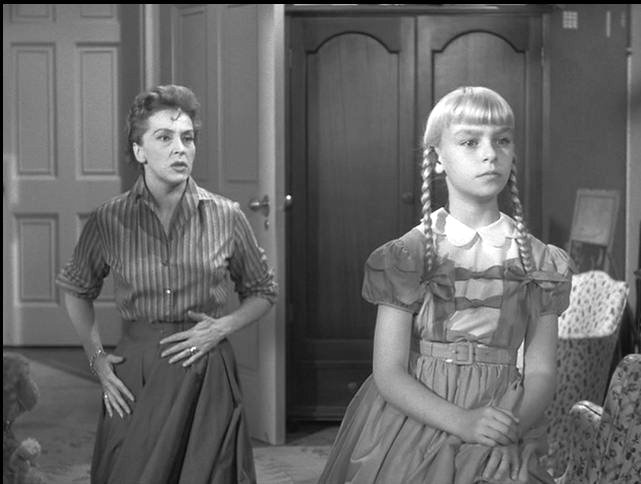![]()
The Bad Seed (1956) Directed by Mervyn LeRoy
The Freudian reading of the play’s perfidious psychology is too dense to be treated as a basic, pathetic soap opera. Mervyn LeRoy does his best directing, but even so the incongruous theatricality of the format on which this story is based differs with the aesthetic tact of LeRoy, who strives to make a profound mise-en-scène even though it is uncompromisingly flat. In theory, it’s an immaculate thriller, a slyly wicked story about the sweetest, most innocent little girl who turns out to be a cold-blooded, malicious psychopath. Patty McCormack reprises her role as the malevolent Rhoda Penmark – the first time she played Rhoda was in the 1954 play of the same name – a tender, harmless little girl on the outside but a spiteful narcissist on the inside. McCormack is sweetly diabolical as the prototypical “evil child,” she is objectively the only pillar that sustains this imperfect production, the rest falls apart quickly. The pernicious themes that lurk in the subtext of the verbose dialogue are trenchantly subversive; they always seem to be a caustic deconstruction of the conservative ideals of the 1950s American family. While this protracted, endlessly verbal and philosophical facet held my attention, I can’t say the same for its languorous melodrama. In the end, the film self-sabotages itself by playing a thriller as a tawdry melodrama, and the puritanism of the Hays Code ends up doing its thing by spoiling the novel’s original, dark ending by changing it to a morally correct one.

